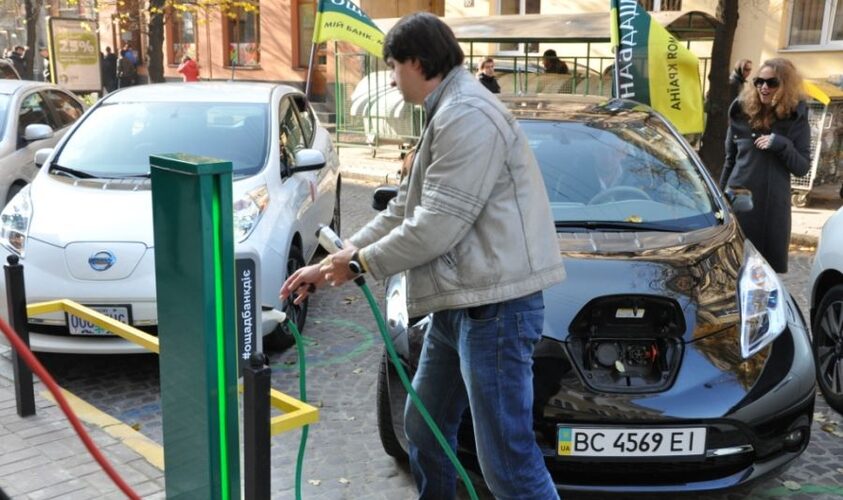Today, on March 28, the Lviv City Council approved the Lviv Municipal Electric Mobility Development Program at a plenary session.
The goal is to ensure the development of sustainable urban mobility, improve the public transport system, implement renewable energy projects, create infrastructure for charging electric cars, and resolve urban logistics issues.
According to Oleh Zabarylo, Director of the Department of Urban Mobility and Street Infrastructure, this program describes the vector of the city’s movement in the electric mobility sector for the next 10 years. In particular, it includes a list of measures in the field of electric mobility that need to be taken during these years.
“In particular, the program defines 5 key areas: renewal of public transport rolling stock, development of infrastructure for electric vehicles, sharing electric mobility, electric vehicle charging stations and related measures to be implemented by the city council in the context of electric mobility over the next 10 years,” said Oleg Zabarylo.
Five goals of the Electromobility Development Program
The first goal is that all electric transport rolling stock must meet modern standards of environmental friendliness, energy efficiency, and accessibility. This means renewing the rolling stock of trams and trolleybuses and introducing battery electric buses and electric buses with dynamic charging. The city’s goal is to systematically phase out diesel buses on all city routes. This includes rolling stock of both municipal and private carriers.
The second goal is a developed transport infrastructure. It includes the development of infrastructure to ensure the smooth movement of public transport, modernization of feeder cable lines and traction substations, creation and integration of local renewable energy power plants into electric transport systems, charging infrastructure for battery buses, stationary battery systems, modernization and construction of depots and their buildings, modernization of tracks and contact networks, and completion of critical gaps in the network.
The third goal is low-carbon urban logistics with an emphasis on electric bicycles and electric vans. This means switching the city’s goods and parcel delivery sector to electric energy.
The fourth goal is ride-sharing electric mobility. This option in EU cities is constantly expanding and includes various forms and practices of sharing electric cars, scooters, ordinary and cargo bicycles, electric bicycles, etc. The city aims to develop sharing mobility with an emphasis on electric vehicles and electrically assisted bicycles.
The fifth goal is a developed charging infrastructure. The city aims to create charging hubs with a priority for business users, taxis and logistics vehicles, as well as for its own use – charging municipal vehicles. The operators of such charging stations can be either a utility company or private operators on concession or other contractual terms.
By the way, the Lviv Municipal Electric Mobility Development Plan was developed with the advisory and expert assistance of the German government organization GIZ within the framework of the international project TUMIVolt as part of the implementation of the Sustainable Urban Mobility Plan.

